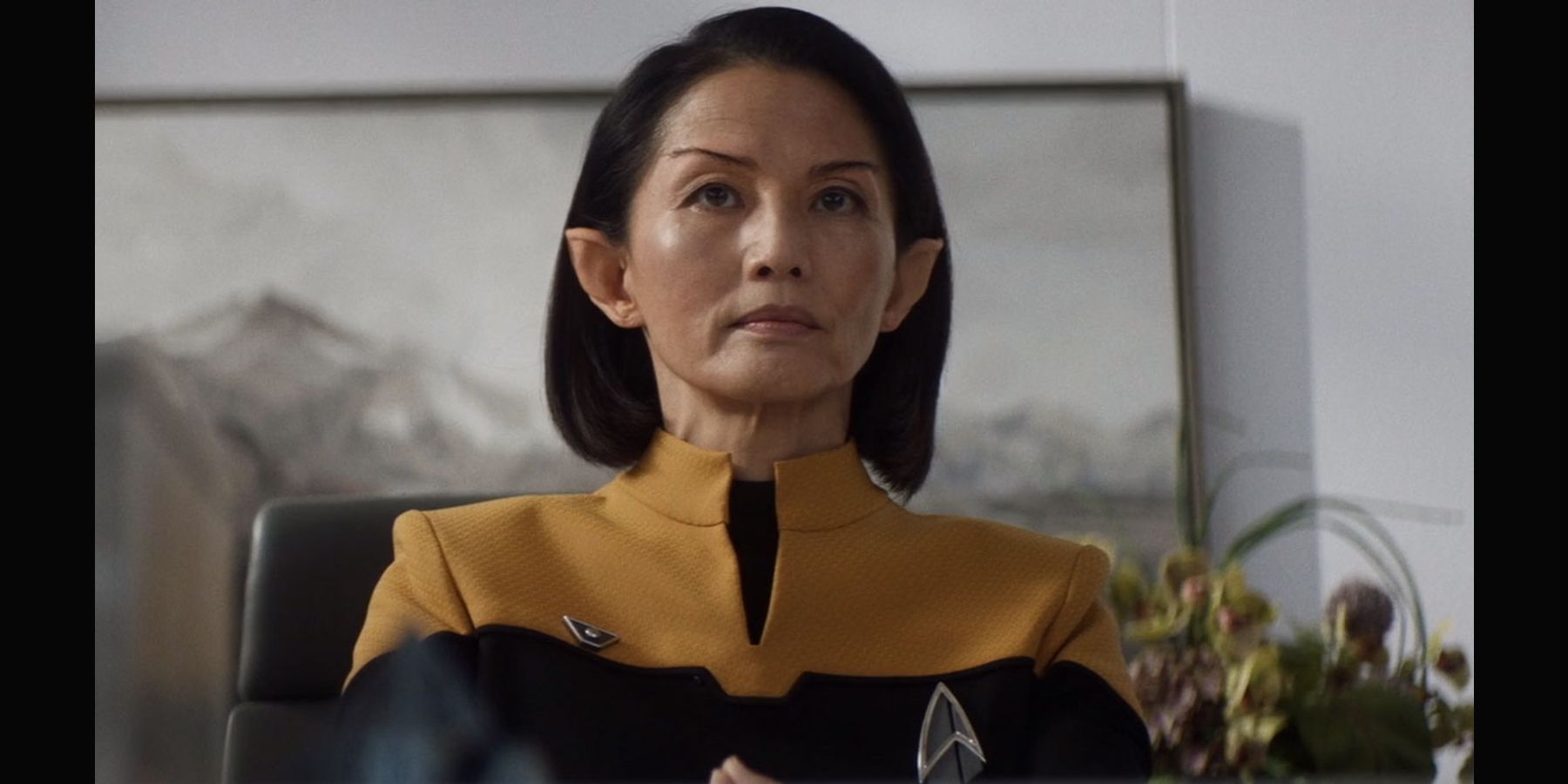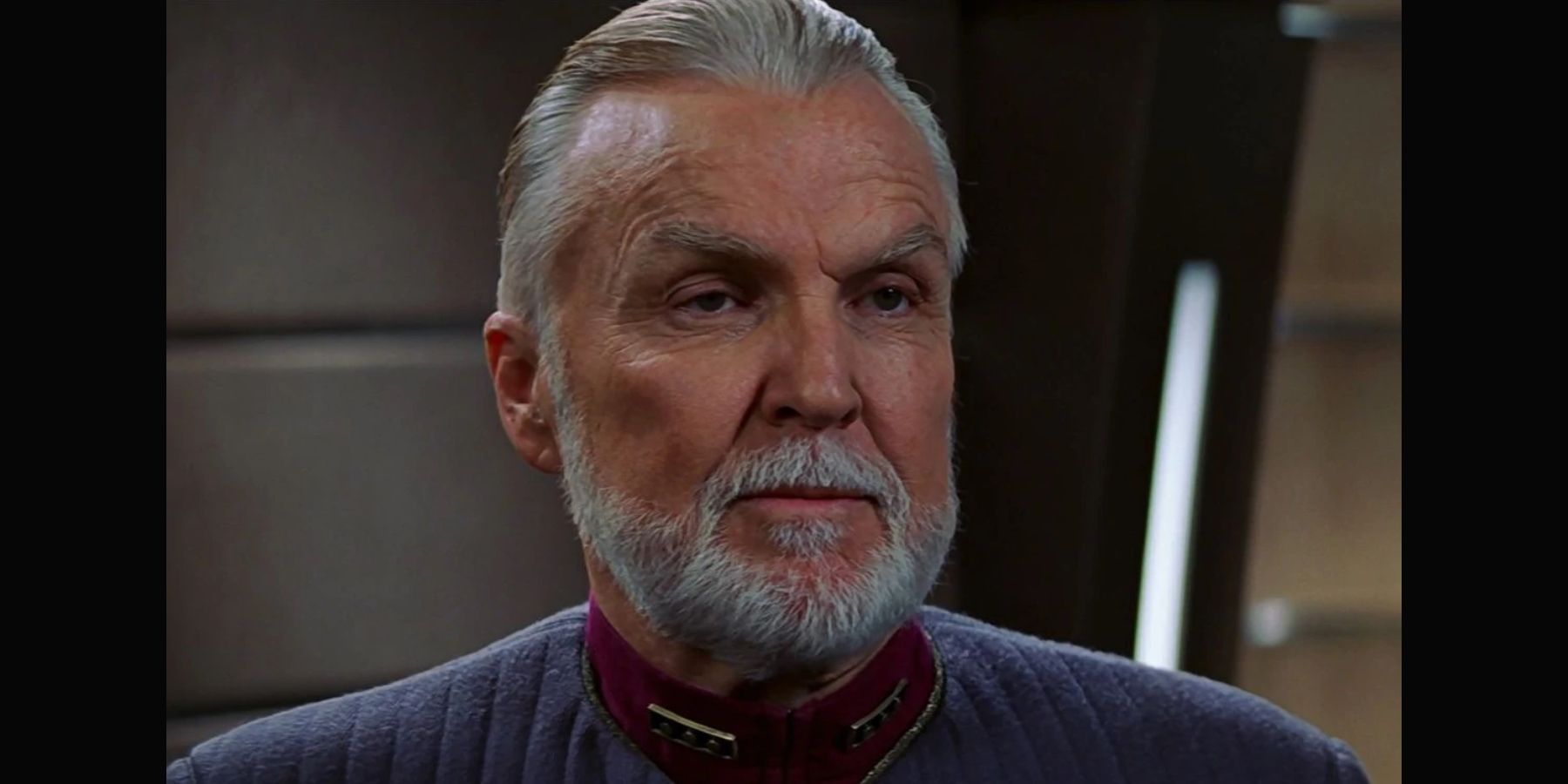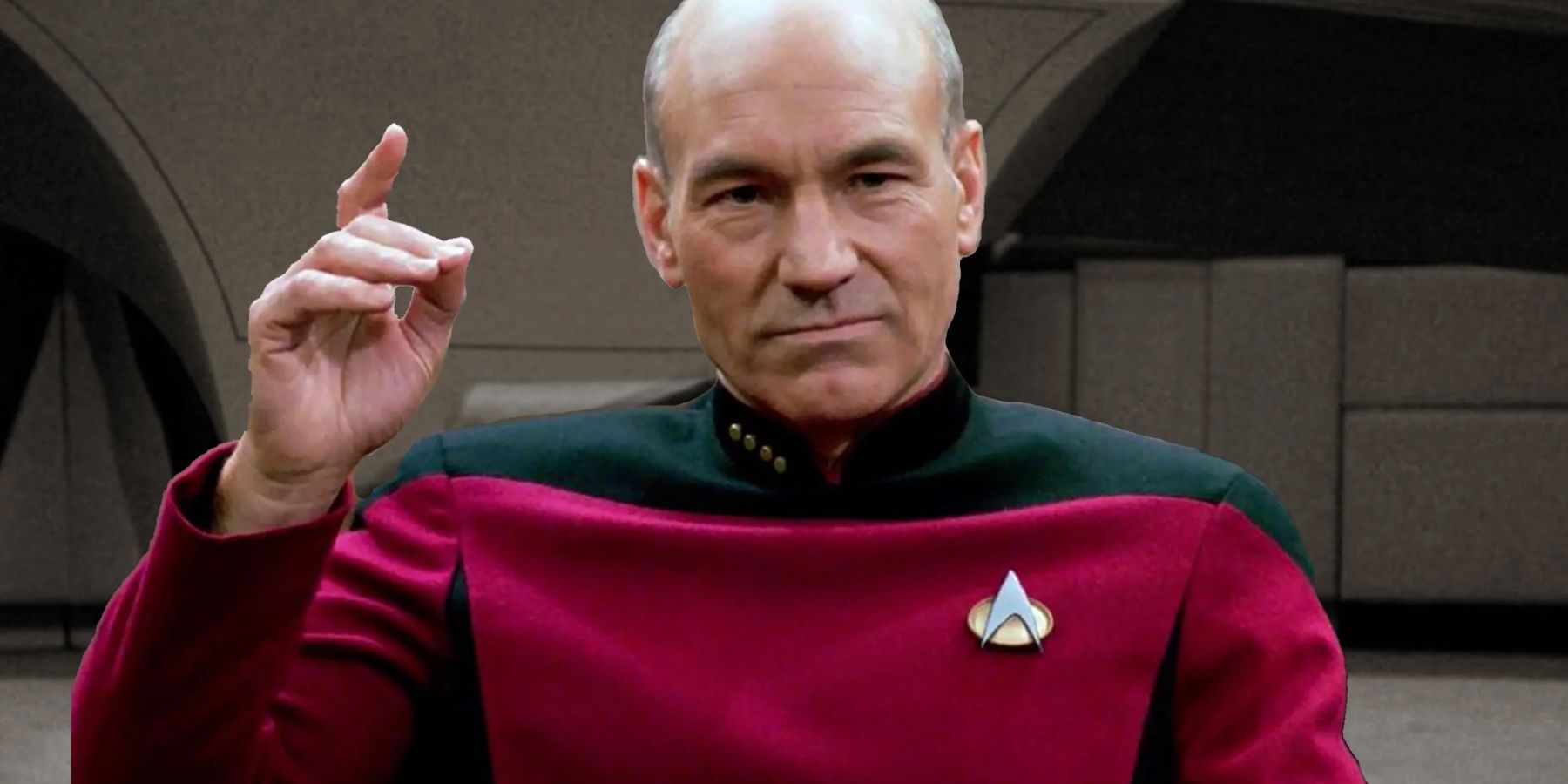In a universe as big as the one in Star Trek, with a plethora of different programs and movies written by different people, it’s only natural that there are a few inconsistencies along the way. There are big ones, ones that annoy long time fans, such as the Dilithium continuity errors found within Discovery.
There are others that can be blissfully ignored, like the various different scientific explanations for how transporters work. There are often variations between different shows, with different casts and stories, who forget the specifics of narrative others have set up in different shows. However, there is one inconsistency that spans the entire Next Generation series: There never seems to be the same commanding admiral for Captain Jean-Luc Picard and his crew.
Like many explanations for questions fans have about the shows, the answer lies both in universe and out. The non-canon reason is that the producers struggled to simply find actors for the roles. They needed a performer who would be happy to just have an occasional sideline character, but would not overshadow the authority of the main leads. They were supposed to be commanding, outranking the protagonist captains, and technically had the power to tell them exactly what to do.
Yet, the writers wanted them to be forgettable or easily ignorable to help justify moments where Picard or other main captains chose to defy their orders and do what they believed to be right. In the end, the captains should still come across as more powerful characters than a pencil pushing admiral who had little to no real world experience. If anything, the franchise has shown again and again that it is often the worst captains that blindly follow orders, instead of questioning them.
The ‘admiral of the week’ TV trope came in because of this, but also because the writers wanted to avoid providing a tangible face for the orders of a faceless conglomerate such as Starfleet. Giving them recurring characters made them relatable or recognizable, even understandable, drawing the attention away from the main cast. When they needed a more specific gravitas for whatever orders are coming from on high, the show did bring back a familiar face or two. These characters' recognizability suggested that whatever they were doing there was important. However, for the majority of admirals who just appeared to give orders, the actors changed constantly. There were of course exceptions to this; however, these were more due to specific plot points, such as admirals who were secretly evil, traitors, or just downright mad.
Like many other Star Trek decisions made due to behind-the-scenes reasons, there is also some very good canon explanation for it too. After all, Star Trek's writers always wanted to make the show feel as realistic as possible. For the ever-changing Admirals Picard would report to, this was vaguely explained by the very nature of the iconic Enterprise ship, and how its purpose was to explore new worlds and civilizations. It was designed to move around a lot, and whenever a plot-driven issue that came up that needed to be addressed by an admiral, these issues often happened in vastly different areas of space.
The franchise had shown over the years that there are a lot of admirals, but that there is also a vast amount of Federation space. The Federation is so big that it’s likely split up and ‘Admiralled’ by different people. No one person could command such an area of space, so when Picard talks to the new Admiral of the episode each time, it’s because they are the ones who are in command of that area. It’s like how each state of America has their own individual police, each commanded by the overall country's laws and regulations, but individually in charge of various different areas.
The show never divulged Picard's specific commanding officer. While it’s safe to assume he had one person that would be, for want of a better word, in charge of him, it’s a good thing the show never divulged this information. It portrayed Picard as the king of his ship, and in a lot of cases he was the person who made all the hard decisions. The orders given to him by the changing faces of admirals were seen more as suggestions. Despite them often literally being orders, Picard often chose when to obey them and when to do what he believed to be right, be it a mistake or not. If the show were to have featured a recurring ‘boss’ for the captain, it would have completely undermined his authority and power, making him less of a powerful character and more of a lackey to whomever held his reigns.



